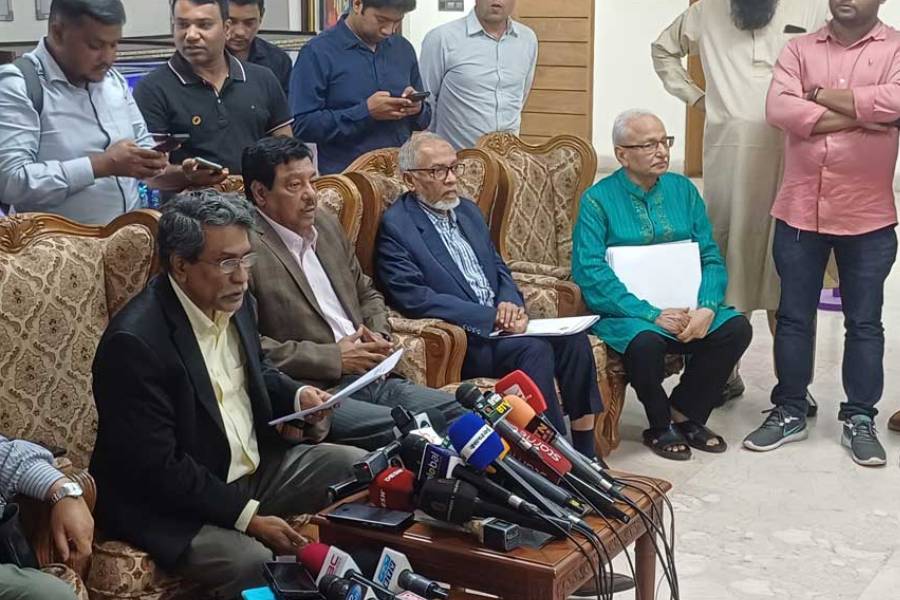

The National Consensus Commission has presented a revised proposal requiring parties to directly nominate women candidates for seven percent of parliamentary seats, while retaining the existing 50 reserved seats for women.
The revised proposal was presented on the 22nd day of the second phase of the dialogue between the panel and political parties at the Foreign Service Academy in Dhaka on Wednesday, reports bdnews24.com.
The Constitutional Reform Commission had called for women to fill 100 parliamentary seats through direct contests. The Election Reform Commission suggested that 100 women’s seats be filled through direct voting in a rotating system. The NCP also called for direct voting for 100 seats in a rotating system. The CPB, BaSaD, and JaSaD called for direct voting overall.
However, the Islamic parties, including Jamaat-e-Islami, spoke of elections to 100 seats under a proportional system. The BNP and its allies spoke of raising the number of reserve seats for women under the current system to 100. After discussions, the commission presented a revised proposal on Jul 14. It said that if a party contests 25 percent of parliamentary seats, they will have to nominate women for at least one-third of these seats.
However, most parties opposed this proposal. Later, at another discussion, BNP Standing Committee member Salahuddin Ahmed proposed keeping the existing 50 reserved seats and also fielding women candidates in 5 percent of seats in the upcoming 13th national election before raising that number to 10 percent for the 14th general election.
After further discussions, the consensus commission presented a new proposal on Wednesday. It said that women’s representation in the national parliament would be increased to 100 seats gradually. By making the necessary amendments to Clause (3) of Article 65 of the Constitution, in addition to maintaining the existing 50 reserved seats, each political party will also nominate women candidates in 7 percent of the seats in the general election following the signing of the National Charter 2025.
Each political party will then nominate women candidates to directly contest 15 percent of the seats in the 14th national election. Political parties will gradually increase this rate by 5 percent in each general election and increase women’s representation to 100 seats by nominating women to directly contest parliamentary seats. In this way, by the 15th general election, political parties will nominate a sufficient number of women so that 100 women will be directly elected to parliament.
The 17th Amendment of 2018, which was passed by parliament on Jul 8 that year, extended the term of reserved seats for women by another 25 years. Accordingly, there is a provision that the seats reserved for women will remain in place until 2043. However, under Article 65(3) and (3A) of the Constitution, the provision of reserved seats for women will no longer remain in effect after the 14th National Parliament.


 For all latest news, follow The Financial Express Google News channel.
For all latest news, follow The Financial Express Google News channel.